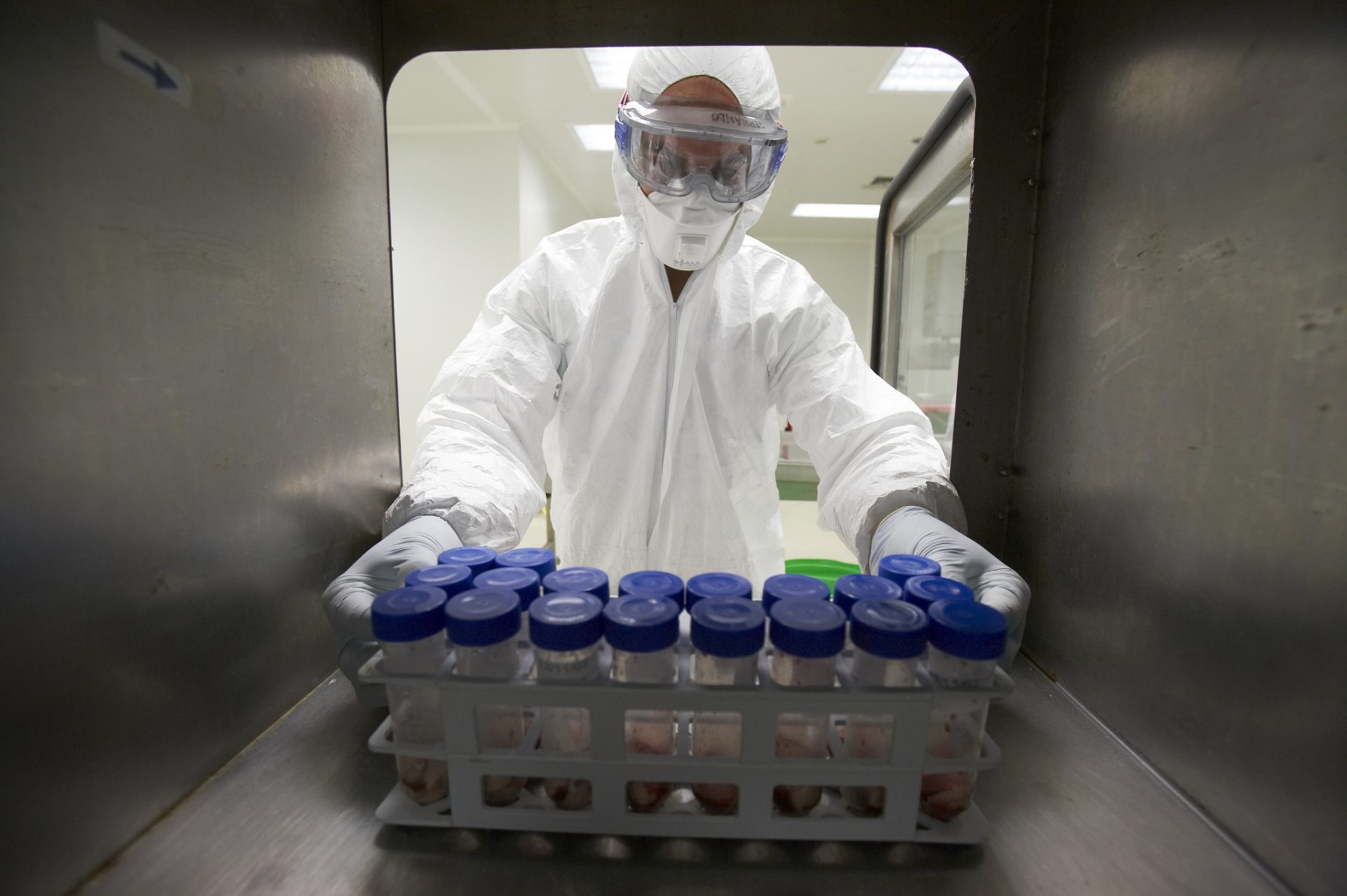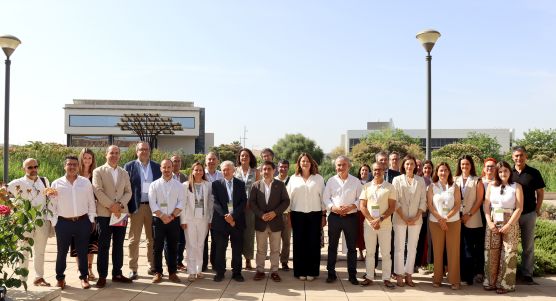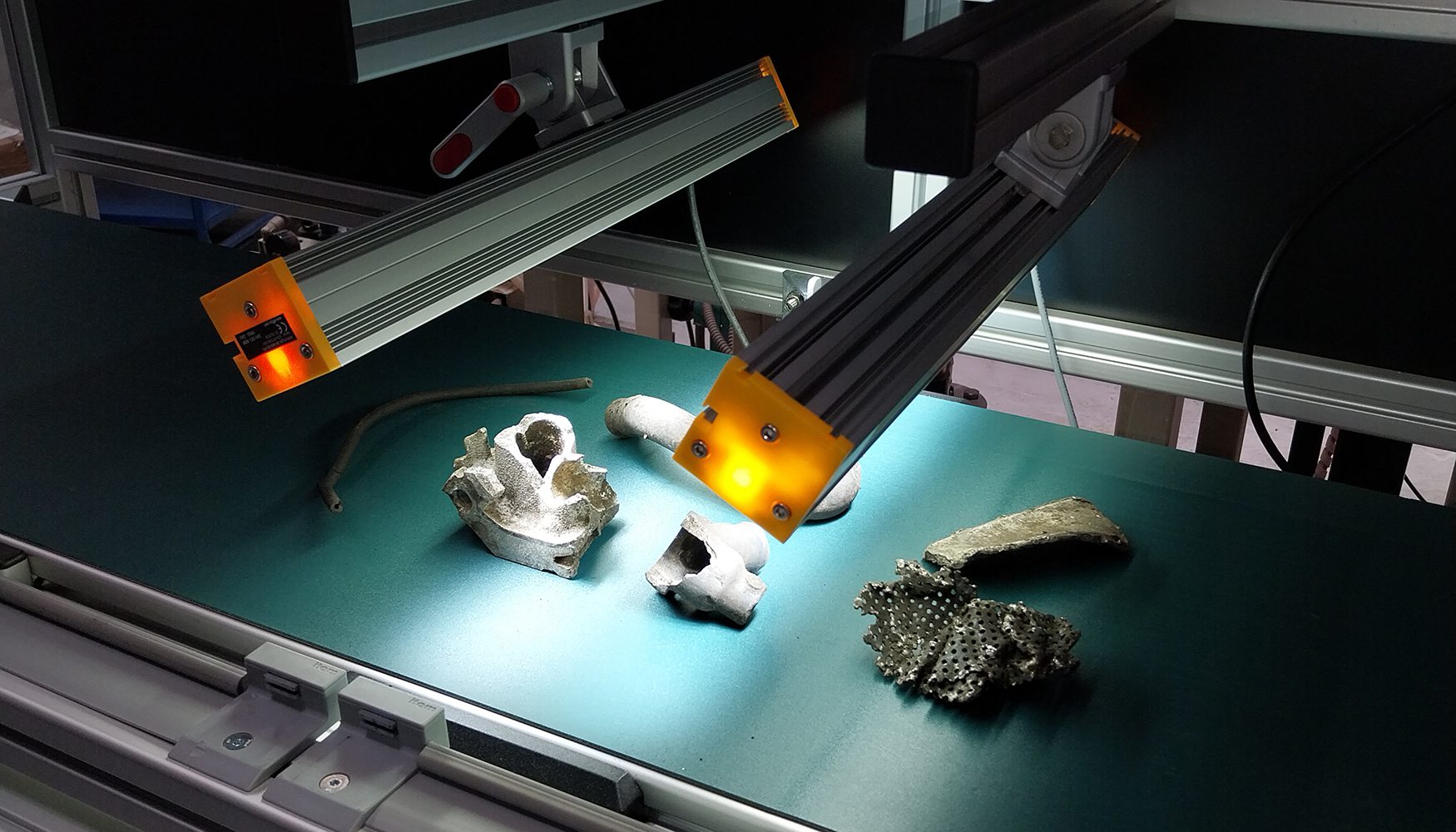NEIKER renovates its high biosafety facilities needed to work with pathogens that require special biocontainment measures

The technology centre is to carry out a complete refurbishment of its level 3 biological containment building (NCB3), where it carries out some of its main lines of research in animal health.
Through these works, the centre will extend its facilities by 180 m2 to 853 m2, rearranging the different areas and, at the same time, optimising its advanced security and biocontainment systems.
These facilities are the third largest of their kind in terms of surface area in Spain and, after the refurbishment, will be at the forefront of Europe in terms of their technical characteristics.
The work, which will last until March 2025, will cost 4,795,000 euros.
Biological Containment Level 3 (BC3) facilities are those that meet the appropriate biosecurity conditions for working with pathogens that are easily transmitted and can cause serious and potentially lethal infection, but for which preventive and/or therapeutic measures are available.
Some of these pathogens are those that can cause diseases such as tuberculosis or avian influenza, which are zoonotic diseases (those that affect both humans and animals). These facilities are specially designed so that nothing – air, effluents, materials and equipment, and even workers – leaves them without proper treatment. Therefore, air filtration equipment equipped with high efficiency filters (HEPA) or the effluent treatment plant, which by thermal and/or chemical treatment is able to inactivate any pathogens present in the effluents before they are released, are particularly relevant. However, it must be borne in mind that, in addition to structural technical aspects, these laboratories require rigorous working protocols and specialised training of the personnel working in them.
Since 2002 and coinciding with the health alert caused by ‘mad cow disease’, the NEIKER technology centre, a member of the Basque Research and Technology Alliance (BRTA) and dependent on the Basque Government’s Vice-Ministry of Agriculture, Fisheries and Food Policy, has had NCB3 facilities at its headquarters on the Zamudio/Derio Campus of the Basque Country Technology Park. Within the laboratory, the centre’s staff work on different lines related to animal health: from the search for vaccines to the improvement of diagnostic techniques, including the detection of pathogens within the framework of the disease surveillance and eradication programmes that the Basque Country must comply with, always under the strictest biosafety and biocontainment parameters.
“This infrastructure has allowed us to respond to some of the most important health crises in the livestock sector in the last two decades, such as the one caused by transmissible spongiform encephalopathies – mad cow disease – or avian influenza”, explains Joseba Garrido, head of NEIKER’s Animal Health Department.
In this context, the centre has just started the complete refurbishment of the biocontainment level 3 facilities. The works, which will last until March 2025, will cost 4,795,000 euros and will enable the surface area of the facility to be increased to 853 m2, while at the same time renovating the plant’s biosafety and biocontainment systems and equipment.
With the extension, a new distribution of the work areas will also be established based on current needs. “Today, the laboratory is an open area. With the new layout, we will have five independent laboratories, providing space in the same facility for different internal and external working groups, making the most of the surface area,” says the head of the centre’s Animal Health Department.
In addition to the laboratories, the experimentation area will also be refurbished. The area dedicated to laboratory animals such as mice, guinea pigs or rabbits will be differentiated from that dedicated to other larger animal models, adapting the facilities to current regulations and needs. The work on these animal models is fundamental for the development of some of its lines of research, as well as being used by other members of the Basque Science and Technology Network and the BRTA. In this sense, the centre has decades of expertise in research into vaccines, diagnostic protocols and new control tools against these pathogens.
A benchmark in biosafety
And let’s not forget the most important aspects that must be taken into account in this type of facility: biosafety and biocontainment, given that no pathogen should leave the laboratory without receiving the appropriate treatment.
In this sense, the facility is going to take an important technical leap forward, as the current systems that ensure biocontainment will be replaced by new, state-of-the-art, more energy-efficient equipment, which is very important if we take into account that these are facilities that are in constant operation in order to maintain the negative pressure with respect to the outside. This means that, at all times, the installation is working to ensure that, under no circumstances, including internal accidents, can anything, not even air, leave without correct treatment. Therefore, the infrastructure will have new air conditioning and filtration systems, which are of utmost importance in level 3 laboratories, as well as a new effluent treatment plant and, finally, a new incinerator furnace for the final transformation of organic solid waste into ashes, now free of biological risk.
Critical equipment such as air filtration and air conditioning equipment, the effluent treatment plant and the double-door autoclaves will be redundant so that, even if breakdowns occur, activity can be maintained without compromising biosafety or biocontainment, which is vital given that these facilities are used for long-term studies whose experiments cannot be interrupted.
As for the human team, the management of this type of facility requires specialised personnel, such as the research group that carries out its activity at NEIKER, which guarantees the optimal functioning of the facility and the proper development of R&D&I projects from the point of view of biosafety.
Thanks to this infrastructure, in barely two decades NEIKER has become a benchmark in the fields of animal health research and diagnosis. Its facilities are the third largest of their kind in terms of surface area in Spain, and after the refurbishment they will be at the forefront of Europe in terms of their technical characteristics. Since 2015, NEIKER is one of the twelve centres that form part of the Biological Alert Laboratory Network, RE-LAB, whose management is entrusted to the Ministry of Science and Innovation of the Spanish Government through the Carlos III Institute and which provides operational support to the National Security System in the face of risks and threats from biological agents.




